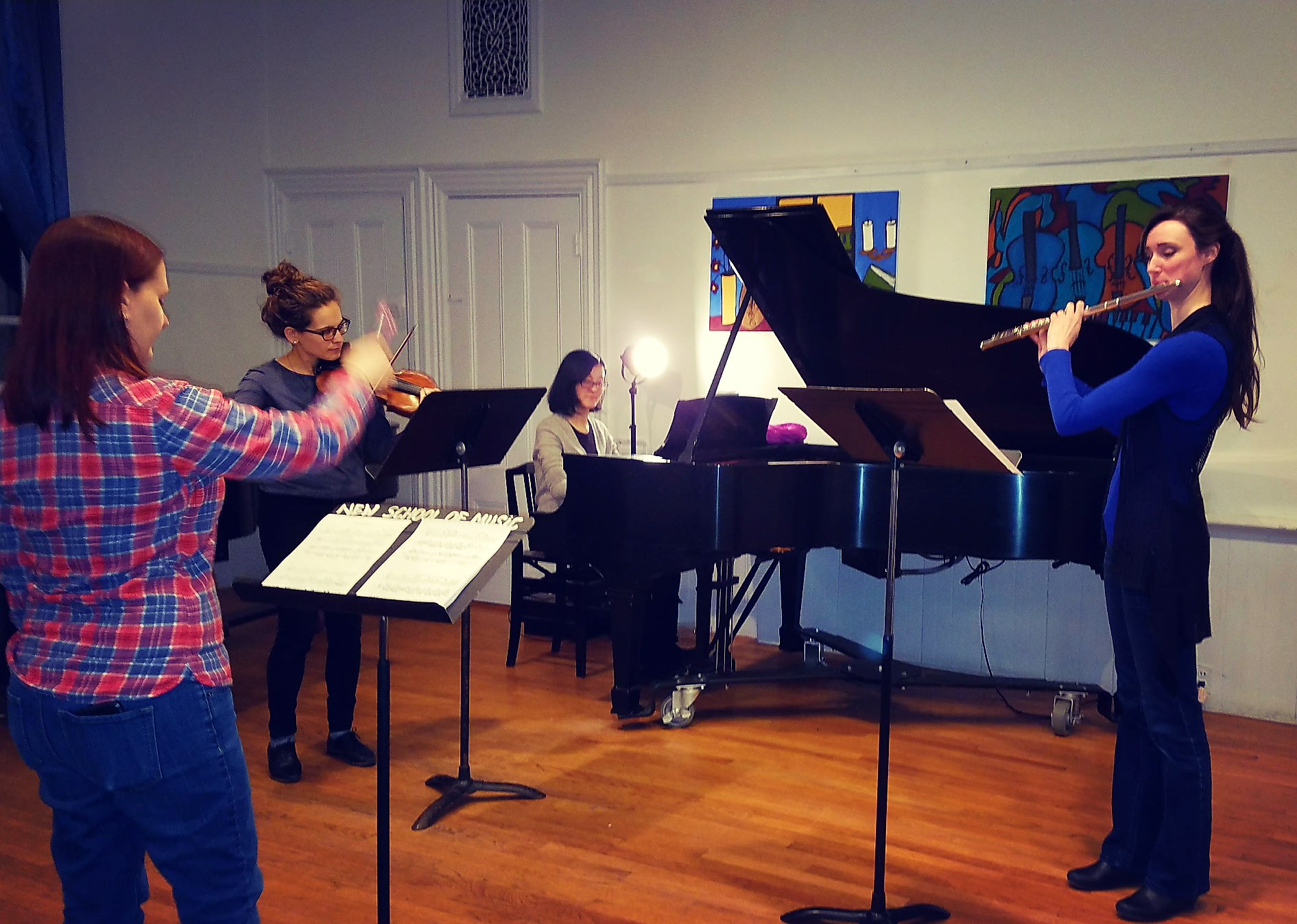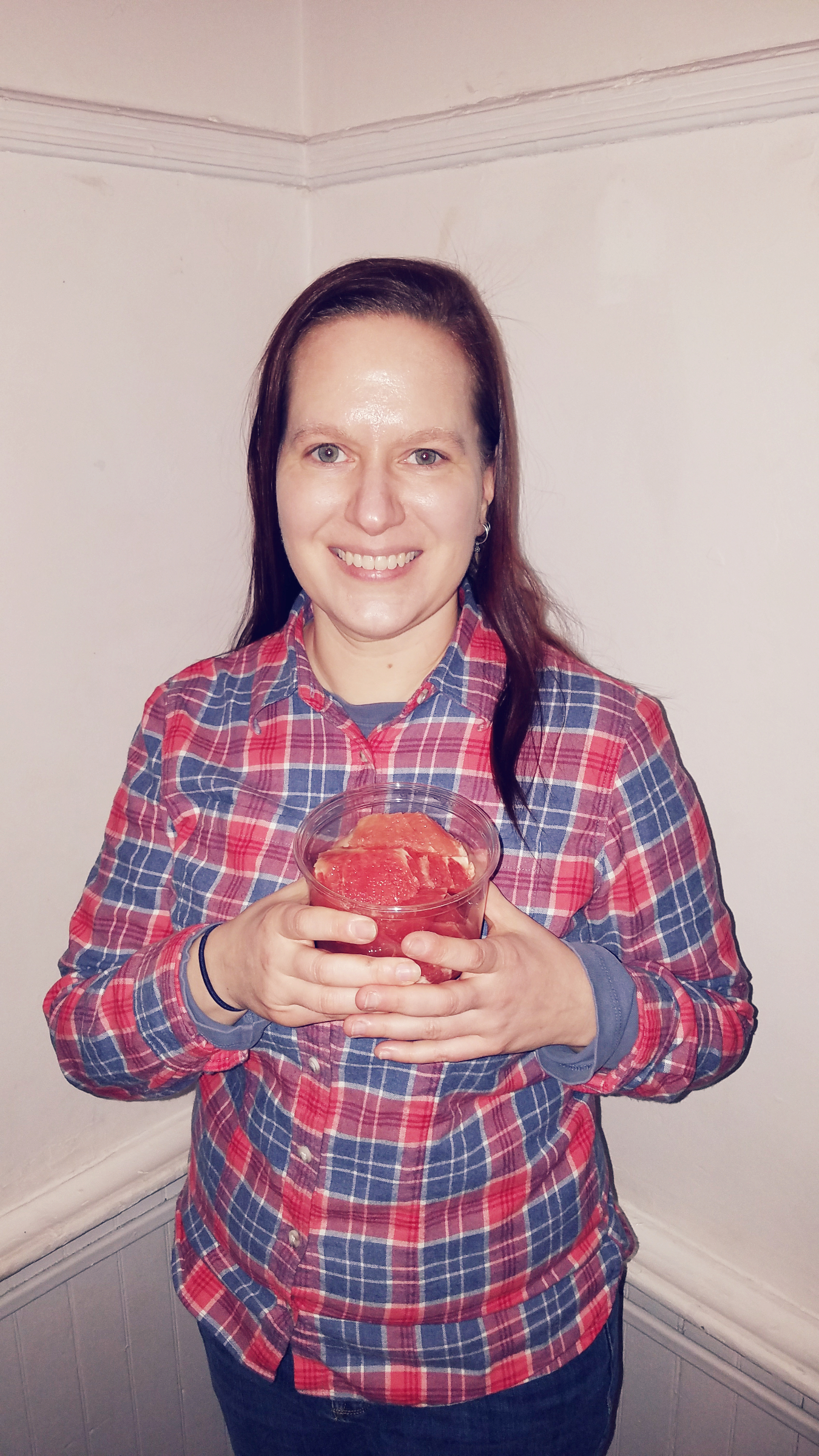Serrated Spoon
Stefanie Lubkowski
“Bitterness is supposed to be, objectively, an unpleasant experience.”
Interview by L. Valena
If you could just start by describing what you responded to?
In the written piece that I got, I really liked the descriptions of the positive and negative of the experience of a grapefruit. And then I got really interested in the descriptions of how you might eat a grapefruit, and the different ways of attacking it, and the idea that it takes a special implement. There seemed to be a shift between a sort of feeling that this is a bitter fruit, but despite that, I really enjoy it. I thought that was a really interesting state of emotions and I also think it's very interesting the way people have very deep enjoyment of experiences with taste in particular, that are objectively not good. Such as bitterness- bitterness is supposed to be, objectively, an unpleasant experience. Yet people are completely devoted to coffee, and very bitter beers, and grapefruits and other kinds of bitter foods.
I know I can't get enough bitterness, myself.
I hadn't really thought about it before, but that kind of dichotomy that we can have in our experiences, or in the things that we enjoy, especially when it is the balance of positive and negative that brings out the enjoyment, is a really fruitful exploration for music. You have the consonant and the dissonant, to put it in the most obvious terms, and the dissonance is objectively maybe the unpleasant sound, but it's actually the combination and the flow from consonance to dissonance and back again, that makes a piece exciting and enjoyable to listen to.
So you're really thinking about the experience of eating something bitter you enjoy, with sweetness in sound and bitterness in sound.
Yeah.
Is that something you explore in the rest of your work?
I think the way that I think about music and the things that I'm interested in tell me to always be very conscious of the ratios of dissonance to consonance. How I flow between them, how much time they get, and to really think carefully about the personality of that relationship and that kind of flowing through time.
Tell me more about the process of reading the prompt and getting to music.
Well, for this one I thought very much about the ideas in the piece in the writing that were about all the difficult parts of eating a grapefruit, and then once you solve those- like having a special spoon to get through the membrane- there's this enjoyment. I thought of different kinds of useful analogues for that, and I came up with the idea of having a dissonant cluster of pitches, and prolonging them in some way, with some texture, and other kinds of things, and then slowly removing the dissonant notes to leave a consonant chord. The piece is very short, so it might be hard from one listening to get that out of it, but that was something that was a guiding principle of the piece and then I extended that into texture. The piece opens with a very heavy texture with violins double stops and big chords on the piano. And then, not only do I pull out the dissonant notes, but I also lighten up the texture, so I kind of take it out of the heavy dissonance in the texture as well. And then the piece kind of goes between those extremes- from a more dissonant, maybe heavier, feeling to a light, consonant kind of feeling.
Wow, that’s just what eating a grapefruit is like!
In looking over the written piece [that was my prompt], there's another part that really struck me. Near the end, where the writer says that the entire room fills with the scent of grapefruit, and then at the end, the last sentence. “A good grapefruit tastes just like the sun- sweet and warm with a burning finish.” I really like that image of sunlight. If it hits something it can be sparkly- like if it hits the juicy pieces of a grapefruit. And so at the end of my piece I try to get a little bit of that light- little drops of juice catching the sunlight in the morning, that kind of image.
Music performed by: Arielle Burke, flute; Abigale Reisman, violin; Kai-Ching Chang, piano. Stefanie brought grapefruit slices to the recording session to make sure everyone was on the same page. Photos by Kai-Ching Chang.
Call Number: C2PP | C3.MU.luSe
Stefanie Lubkowski is a Boston-based composer who writes for various chamber ensembles, voice, wind band, and electronic media. She studied composition at Connecticut College, New England Conservatory, and Boston University. Stefanie creates sound worlds guided by harmony, punctuated by melody, and inspired by literature and the natural world.




